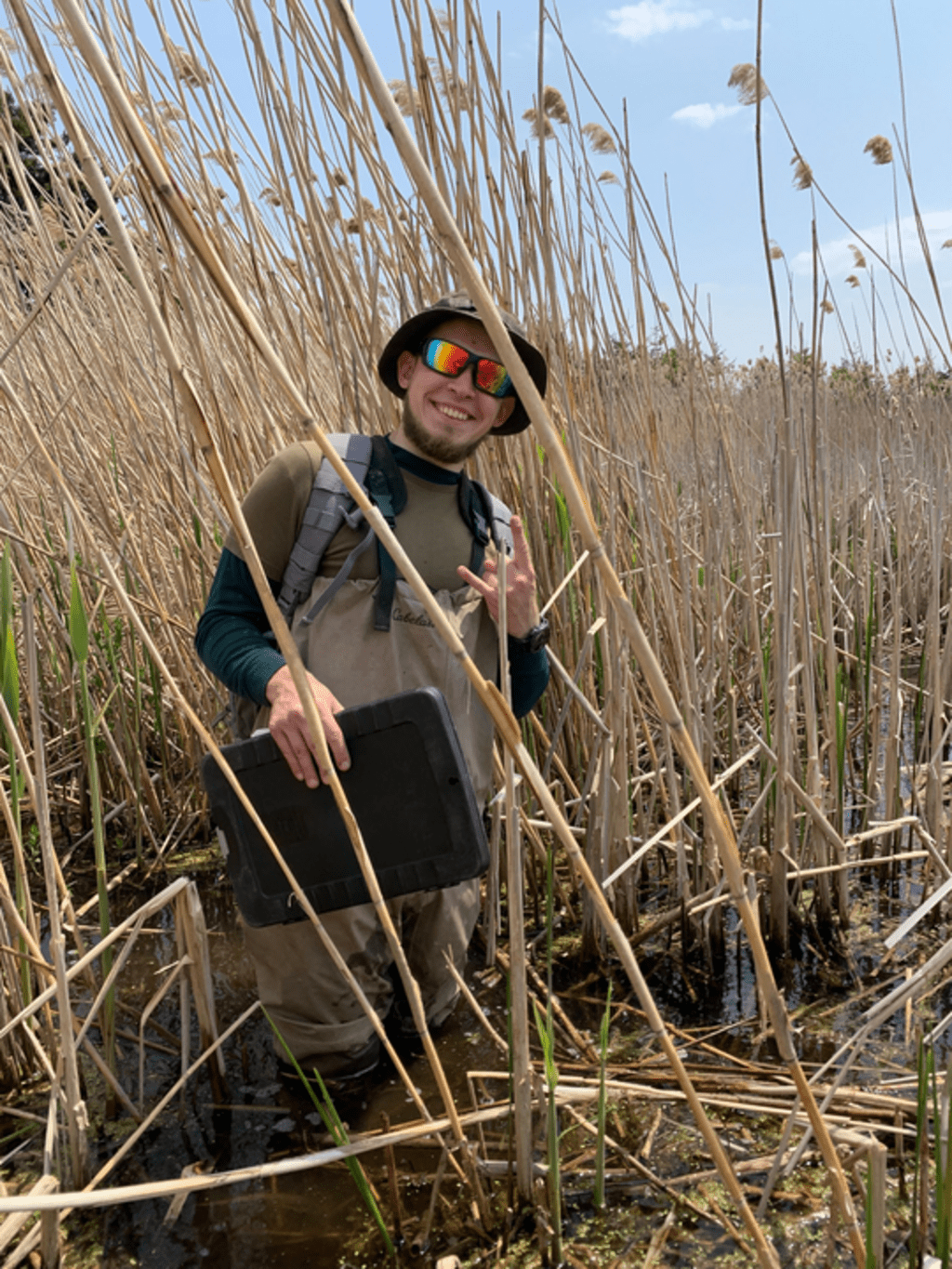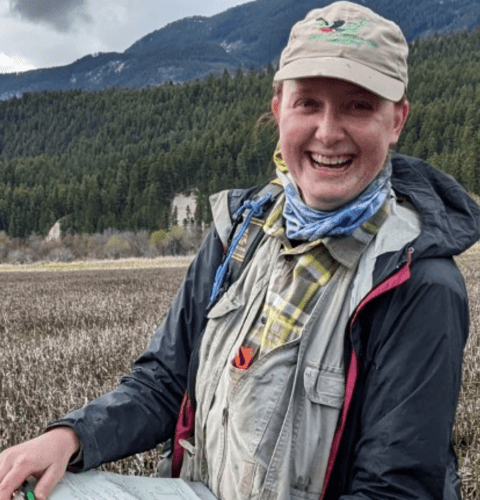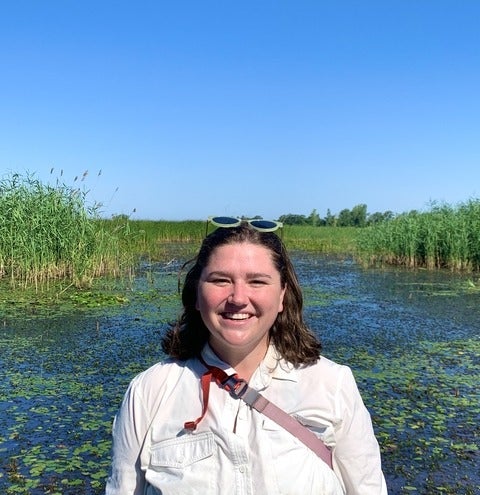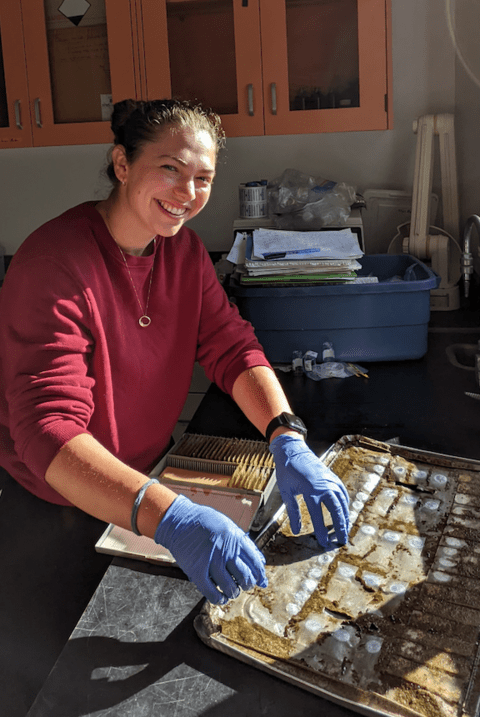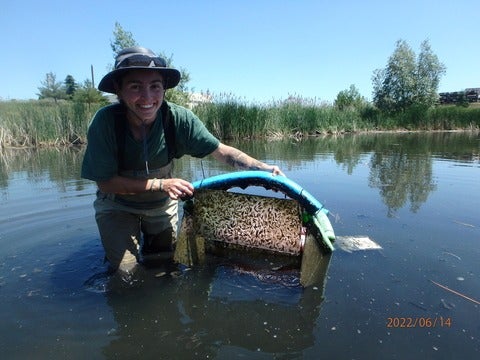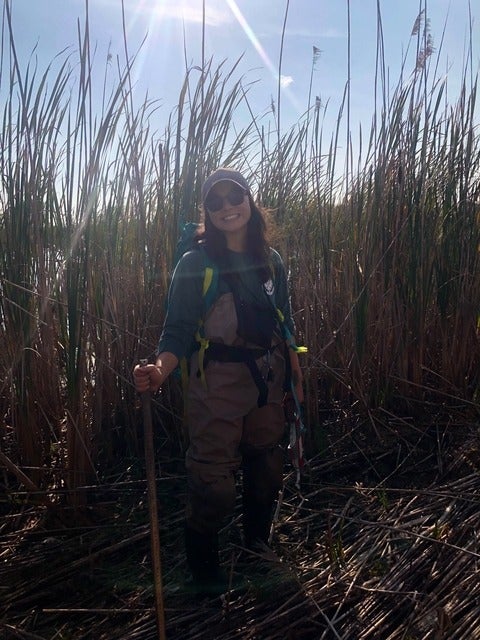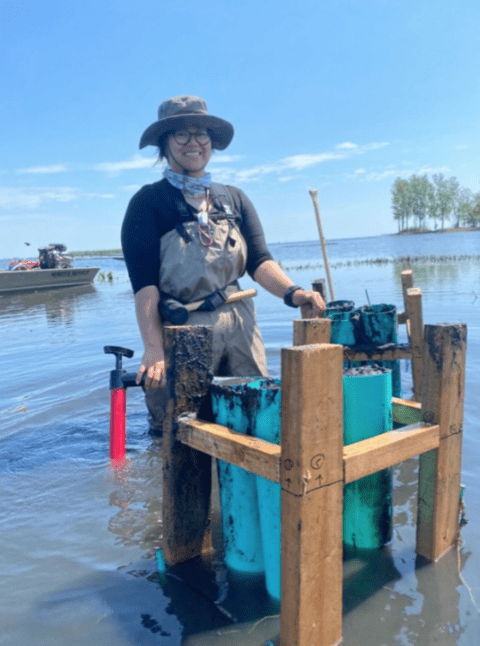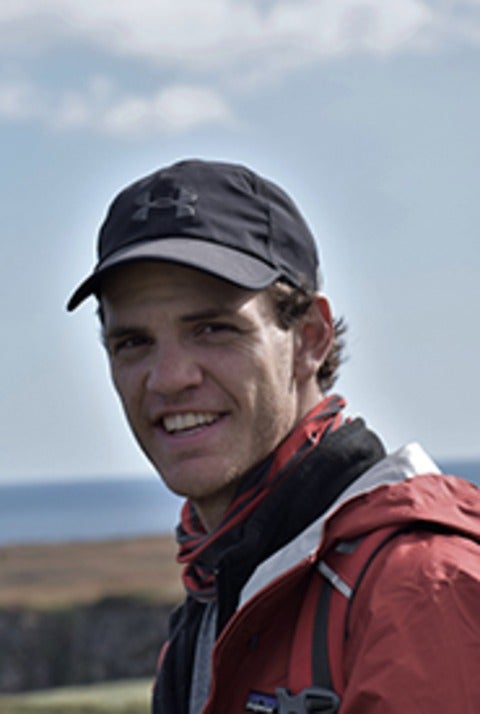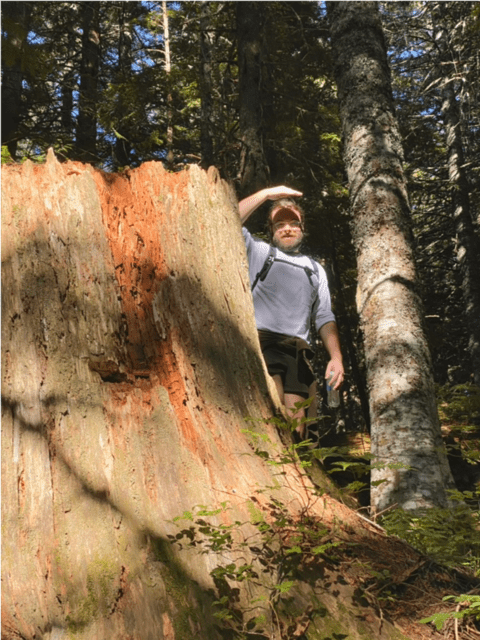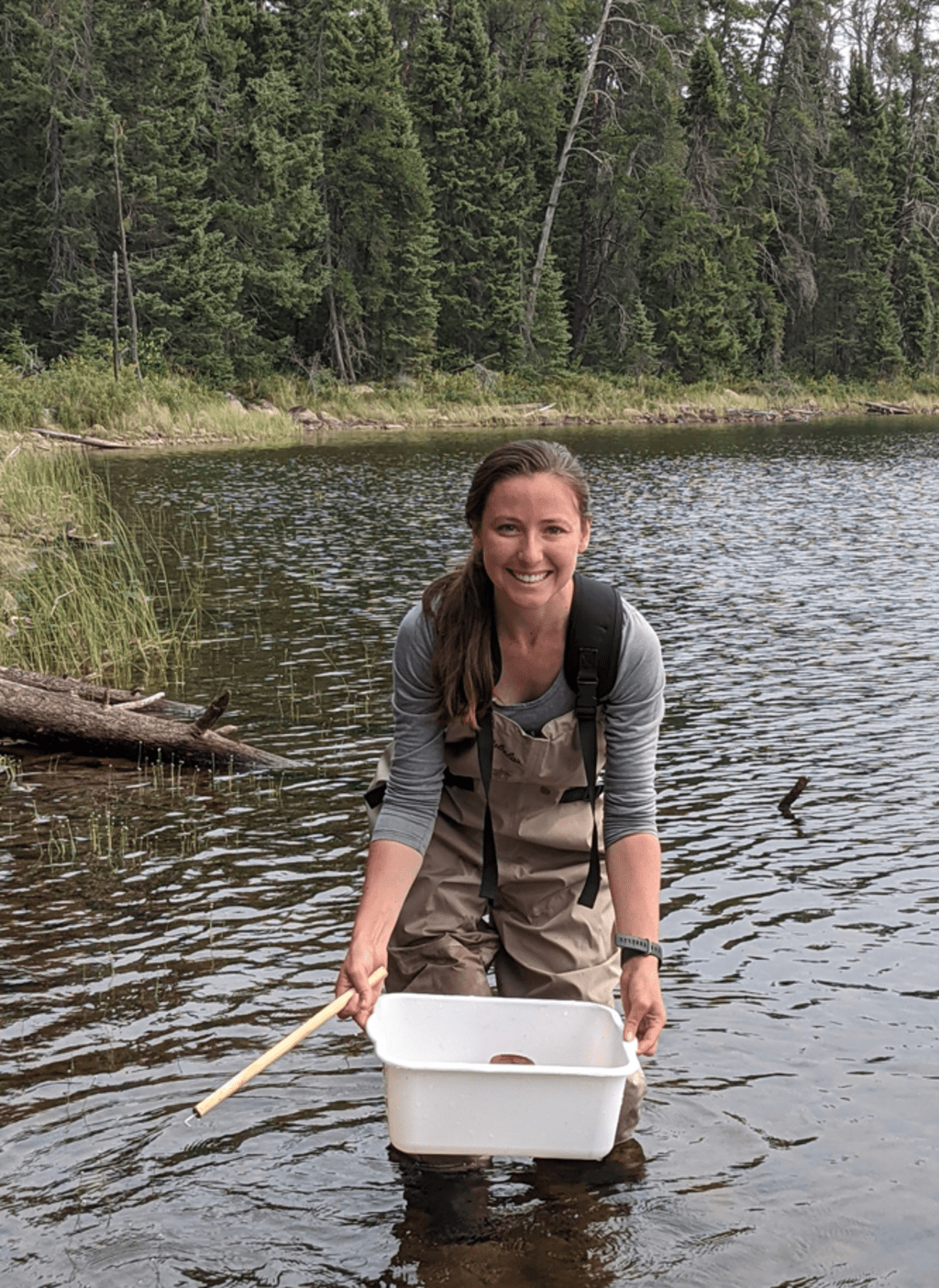I received my bachelor's in Environmental Studies from the National University of Kyiv-Mohyla Academy in Ukraine.
Now I am a participant in a research exchange program in Canada.
Profiles
Filter by:
I’m researching the impacts of beaver dams on wetlands in the Columbia Valley in BC, looking at how the presence of beaver dams and the characteristics of those dams affects the characteristics of wetlands and their use by migratory and breeding birds.
Invasive Phragmites australis is a threat to wetland biodiversity and integrity across North America. My project is investigating the use of insect-based biological control for suppression of invasive Phragmites australis using two stem-boring moths. My research is part of the broader pilot program in North America for the biological control of invasive P. australis.
Microplastics are one the most abundant forms of aquatic pollution in the world today, with studies indicating that every level of the food web interacts with this manmade contaminant. My research focuses on how freshwater invertebrates are affected by microplastics and how they, in turn, may affect microplastics in the environment.
Urban stormwater ponds can simultaneously harbour incredible biological diversity and heavy contaminant loads, but are largely neglected by water monitoring and ecological assessment efforts. My research will help to develop a new and biologically-relevant tool for detecting the presence and concentration of pollutants in stormwater using biofilm (a.k.a. microbial slime!) sampling across a gradient of urbanization.
In my research, I investigate the use of remotely piloted aircraft systems (RPAS) or “drones” as a method to apply herbicide to treat invasive Phragmites australis in wetland environments. My project uses a combination of field collected data and remote sensing techniques to assess the efficacy and accuracy of this application method.
My project involves using trait-based ecology to promote the active restoration of Long Point wetlands after the removal of invasive Phragmites australis. I’m hoping to help the native seed bank by creating and adding seeding prescriptions onto them to bolster their natural biotic resistance against P. australis.
My current research focuses on the response of breeding bird communities during a period of adaptive white-tailed deer management following a prolonged period of overabundance at Long Point, in Norfolk County, Ontario, Canada.
My project focuses on using eDNA metabardocing to better understand biodiversity in urban ecosystems. I focus on stormwater ponds and working with the Residential development Impact Scorecard for the Environment (RISE) to induce ecological best practices in urban developments.
I am investigating the fate and effects of microplastics on freshwater algae. My research involves intensive field work during the spring and summer months at the Experimental Lakes Area (IISD-ELA), as part of a multi-disciplinary collaborative project known as PELAstics. Freshwater lakes are our greatest resources, yet they are currently inundated with plastic and microplastic pollution.
